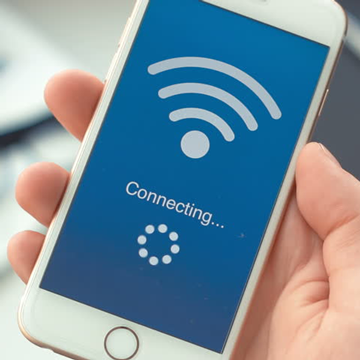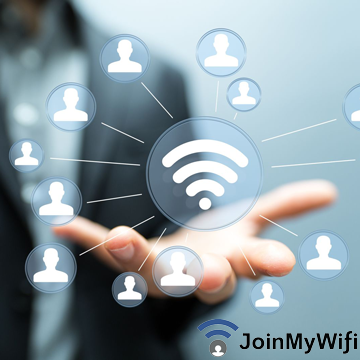
As a company dedicated to WiFi, we have seen a lot of different solutions through the years in this increasingly competitive market and also have tested an array of features at a wide range of businesses. We have discovered that very often what a business wants is not what it actually needs. In other words, sometimes businesses that provide WiFi to their customers set it up in a way that does not give the best results for them. It is not always trivial what works best for each company, that said, from our experience, there are some general guidelines that a company can follow to increase their chance of success.
AVOID THESE
Below we mention briefly some of the most common WiFi configurations we recommend you to AVOID:
- Showing too many advertisements in a single visit: Many companies overdo it with advertisements within the WiFi. You should find the right balance between showing your marketing content and not making your customers seek and tired of using your WiFi, otherwise they’ll switch to 4G. For example, if your customers stay at your store for 2 hours on average, set your ads to show 4 hours apart
- Sharing discount coupons only rarely: Sharing discount coupons regularly in WiFi builds loyalty and creates returning customers. For example, sharing coupons on someone’s birthday, on someone’s 1st visit or someone’s 20th visit are tactics that may lead to increased sales.
- Giving too many login options: This seems to discourage people from logging in. Stick to a maximum of 5 options. Avoid combining telephone option with other free options since it is rarely used, avoid one email-field option since people tend to give fake emails (prefer a form for account creation) and have in mind that the 2 most used social logins are Facebook and Google.
- “Forgetting” previous actions of customers: With some exceptions of course, if you setup a WiFi without auto-login for already “known” users, it will end up frustrating your customers. Same goes with accepting terms and conditions. The system should remember each user’s choice and not repeatedly asking for the same things over and over again. Another example is requesting feedback more than once on the same day. It will get you a negative rating.
- Having more than 3 steps before a customer connects to the internet: The longer the user-flow, the higher the chance a user will quit the process with frustration before completion. Please keep it simple.
- Allowing access to Facebook, Google, YouTube, etc. before login: If some parts of the internet are accessible before the login process is completed and some others aren’t, it creates confusion to the users whether they are connected or not.
- Using splash page editors to design the layout of promotional material: If you are not a designer, you’d better use the already provided layouts. We’ve witnessed creations comprising of unresponsive designs unsuitable for mobile devices, vast amounts of text which nobody reads, and pixelated images. All that add up in creating a bad image for a company.
- Keep sending marketing messages to customers disregarding their preferences: Respect your customers and their preferences. Give them a way to opt-out from getting this kind of notifications and abide by it.
- Setting up more than one SSID for customers: SSID is short for “Service Set Identifier” and is the name of a WiFi network. Having more than one for customers (for instance a different for each floor) creates confusion and prevents roaming (continuous access to the internet while users are moving from place to place). Moreover, it should be clear which one of all the available SSIDs is for your guests and it should not contain emoticons since they create incompatibilities with some devices. Also, it would help if you never used the same SSID/network for both customers and internal use because this creates a huge security hole in your network (a customer may gain access to your servers or point of sales). Lastly, it would be best if you used a firewall and a network security software in order to prevent your network from getting infected from customers’ devices.
- Providing unregulated bandwidth to customers: WiFi is a “scarce commodity” thus, it should not be left without limitations because it may be monopolized by some users and become unusable by others. Traffic control is a must when providing WiFi to a lot of users simultaneously.
- Requiring customers to pay for internet access: Providing free WiFi plays a significant role in keeping your customers longer at your premises and satisfied. Also, it lures people into your stores.
DON'T TRY THESE
Below we also mention which features, which are often requested, are IMPOSSIBLE at the moment:
- Push notifications to customers: There is no way to push notifications via WiFi (this is a feature enabled from Google and Apple only for mobile Apps).
- Requiring customers to watch an unmuted auto-playing video: There is no way to auto-play videos with sound within the WiFi (Google and Apple do not allow it)
- Requiring customers to download a mobile App: There is no way to require a mobile App download in order to provide WiFi (customer can be redirected to the download page, but Google and Apple do not allow any control over whether they download or not)
- Redirecting, customers that are trying to visit HTTPS webpages, to your webpage: HTTPS webpages are becoming the norm nowadays. It’s all those webpages that have a locker beside their domain name on your browser (Google, YouTube, Facebook, Wikipedia, Amazon, Twitter, Instagram, Banks - all use HTTPS). Those webpages due to their advanced security, they do not allow to redirect, a customer that is trying to visit them, to your webpage. Moreover, they do not allow the injection of any content within their webpages, such as banners or advertisements.
- Requiring customers to “Check-in” or “Like”: Recently, Facebook stopped allowing mandatory “Likes” and stopped providing “Check-in” option to 3rd party applications due to many misuses that happened in the past years. Mandatory Facebook actions are regarded as an intrusion to one’s privacy, so make these optional (same applies for actions on other social platforms).

CONTACT US
We hope this has been informative to you! Contact us if you’d like to discuss further:
-How WiFi can become your new marketing tool
-Why your company might need a WiFi marketing solution
-New WiFi features which can help your company’s sales increase
-----------------------------------Date: 22nd June 2019

